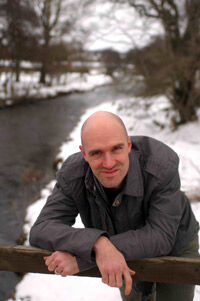University News Last updated 15 August 2012

Birmingham School of the Built Environment is excited to welcome Dr Mark Reed to Birmingham City University, further raising the international profile of the institution’s research and teaching across the natural and built environment.
Dr Reed will be working closely with the Department for Environment, Food and Rural Affairs (DEFRA) and other Government partners to develop business opportunities in the natural environment. Dr Reed’s work is helping communities to get actively involved in adapting to environmental change, encouraging industry and government to consider the value of nature in the decisions they take.
Discussing his new post, Dr Reed said: “I’m really excited about the opportunity to work with some outstanding new colleagues at Birmingham City University and to be part of the University’s rapid rise to prominence.
“Like me, the University is focused on doing research and teaching that is internationally excellent – and that leads to beneficial societal impacts, both locally and internationally. I’m looking forward to working with a new team to take our research, teaching and impact to a new level.”
Dr Reed will work with colleagues at the University’s Centre for Environment and Society Research at Birmingham School of the Built Environment (BSBE) and will be launching a new £264k project at the University next month as part of the UK government’s National Ecosystem Assessment (NEA). This adds to an existing project managed by Alister Scott, Professor of Environmental and Spatial Planning at BSBE, part of Birmingham City University, managing three of ten work packages worth almost half a million pounds in the prestigious NEA programme.
Professor Scott said: “We are delighted to secure someone of Mark’s status to progress our interdisciplinary environmental teaching and research. He builds on our research excellence across the environmental field and shares our primary concern for teaching and research to break down traditional disciplinary and professional silos.”